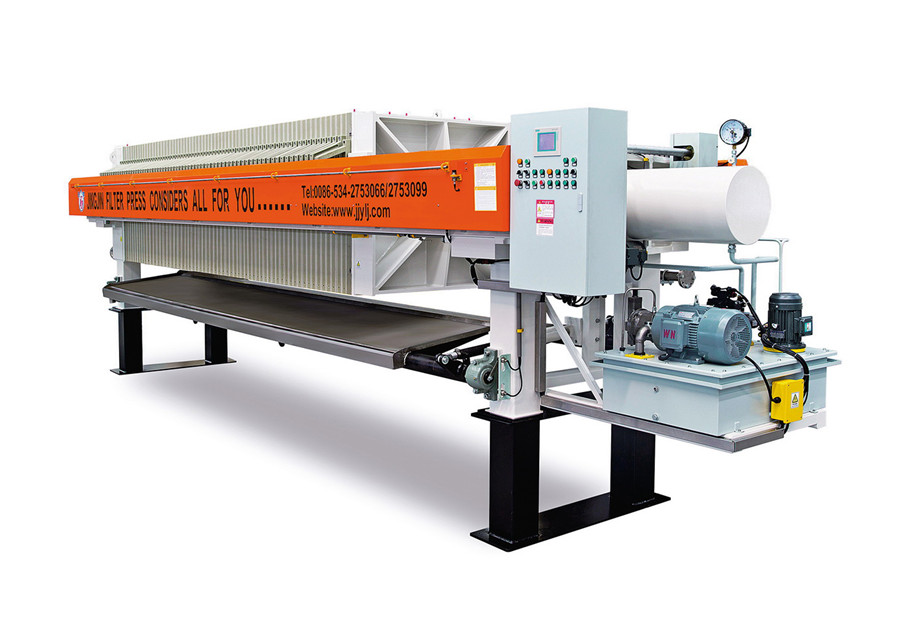Automatic filter presses have a promising future as they are efficient and cost-effective in solid-liquid separation processes.
Here are some potential areas where automatic filter presses could be used in the future:
- Wastewater treatment: Automatic filter presses can be used in wastewater treatment plants to separate solid waste from wastewater. This technology can help reduce the volume of waste that needs to be treated and disposed of.
- Mining and mineral processing: Automatic filter presses can be used in the mining industry to separate valuable minerals from waste rock. This can help reduce the environmental impact of mining and increase the efficiency of mineral processing.
- Chemical and pharmaceutical industries: Automatic filter presses can be used in chemical and pharmaceutical industries to separate solids from liquids during the production process. This can help improve product quality and reduce production costs.
- Food and beverage industry: Automatic filter presses can be used in the food and beverage industry to separate solids from liquids during the production of beverages, oils, and other food products.
- Energy production: Automatic filter presses can be used in energy production to separate solids from liquids during the production of biofuels, oil, and gas. This can help reduce production costs and improve the efficiency of energy production processes.
Overall, automatic filter presses have a wide range of potential applications in various industries, and their future looks bright as more companies seek efficient and cost-effective solid-liquid separation solutions.
How the automatic filter press Changes the Competitive Battleground
The automatic filter press has the potential to change the competitive battleground in several ways:
- Cost-effectiveness: Automatic filter presses are cost-effective compared to other solid-liquid separation technologies. As a result, companies that adopt automatic filter presses can reduce their production costs and become more competitive in the market.
- Efficiency: Automatic filter presses are more efficient than traditional filter presses because they require less operator intervention and have a shorter filtration cycle time. automatic filter press This increased efficiency can help companies produce more product in less time, leading to increased profitability and competitiveness.
- Sustainability: Automatic filter presses can help companies reduce their environmental footprint by reducing the amount of waste generated during production processes. Companies that adopt sustainable practices are becoming increasingly attractive to environmentally conscious consumers, leading to a competitive advantage in the market.
- Customization: Automatic filter presses can be customized to meet the specific needs of a company’s production processes. This level of customization can help companies optimize their filtration process, leading to increased efficiency and competitiveness.
Overall, the adoption of automatic filter presses can provide companies with a competitive advantage by reducing production costs, increasing efficiency, improving sustainability, and offering customization options. As a result, companies that adopt this technology are likely to outperform their competitors in the market.
